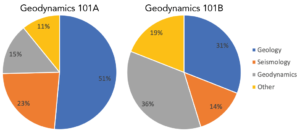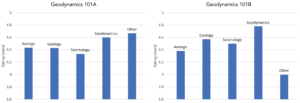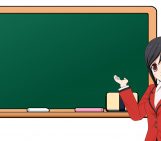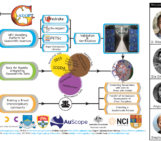
Credit:Pixabay
The deadline for session (and short course!) proposals for EGU 2020 is tomorrow on September 5, 2019! So, if you have a great idea for a session or a short course you still have a little bit of time to write a smashing proposal, find a nice co-convener and submit it to ensure that you will be able to access the convener’s party next year without a fuss.
Why not share your knowledge on correct code management and version control with the community? Maybe you could spark a discussion about disabilities or gender equality in geosciences. Or maybe you and your colleagues can devise the perfect session for your niche research topic, such that finding a session won’t be a problem any more! Don’t hesitate: anyone can do it!
What? You don’t believe me? Well, we have been hosting the Geodynamics 101 short courses (inspired by our blog posts) for 2 years now and they have been a great success! And trust me, I didn’t know anything about organising short courses at EGU either before I embarked on this journey. Turns out: it’s pretty straightforward.
For a little transparency and insight into organising the courses, here is a little summary of the feedback from the two courses we hosted at EGU 2019:
• Geodynamics 101A: Numerical methods
• Geodynamics 101B: Large-scale dynamic processes
And we’ll also discuss our plans for the short course next year!
We decided to have 2 short courses at EGU 2019, because of the feedback we got at EGU 2018 about people desiring more info on the applications of numerical methods in geodynamics. Your wish is our command, so we delivered. Both courses were attended well, but the first course (about numerical methods) was more popular by far with people queueing and standing even outside of the room. So, we will ask for a bigger room at EGU 2020.
People from many different disciplines attended the courses. Surprisingly a large amount of geodynamicists were present! Most of them (you?) attended to get a quick refresher in (the broad area) of geodynamics and to see how you can do geodynamics outreach. Our course was particularly popular with geologists, and there were also some hydrologists, meteorologists, and computer scientists attending!

The scientific background of the participants in the two Geodynamics 101 short courses at EGU GA 2019. Did you join us?
People gave the course a high rating with an average grade of 4.4/5 for Geodynamics 101A and Geodynamics 101B. The highest ratings were given by the geodynamicists attending the short courses. Hm… maybe because you are our friends?

The rating of the Geodynamics 101 short courses by our participants (divided by background).
The main feedback was that people would like to know how to actually run codes and see some more hands-on examples. So, next year, we will be back with a new and improved version of the “Geodynamics 101: Numerical methods” course which will include some demos of running a code.
Maybe I will see you there and who knows…? Maybe I will be at your session or short course!




